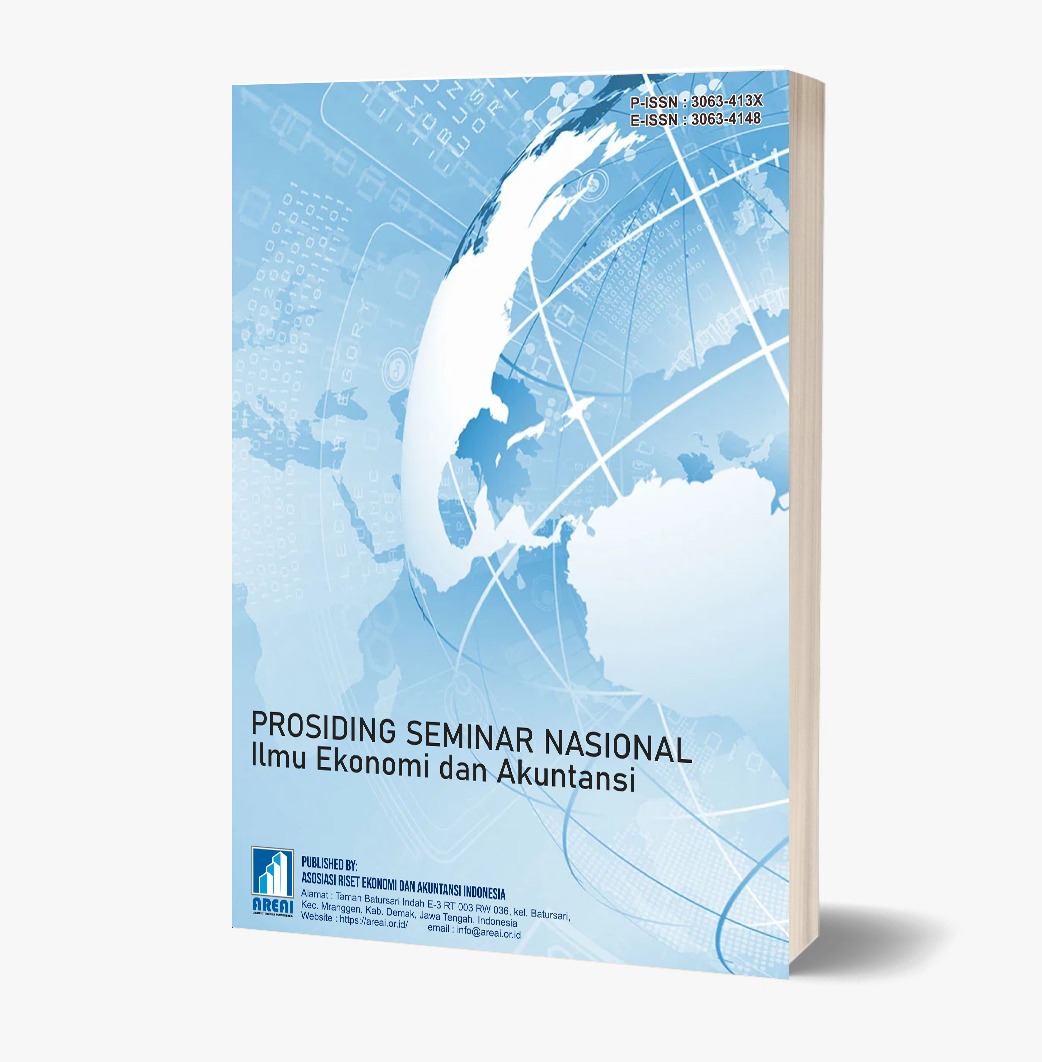Insentif Pajak dan Digitalisasi Pajak Pada SMK Muhammadiyah 08 Medan
DOI:
https://doi.org/10.62951/prosemnasieda.v1i2.41Keywords:
Tax Incentive Policy, Tax Digitalization, Tax SanctionsAbstract
This study aims to analyze the effect of tax incentive policies on taxpayer compliance at SMK Muhammadiyah 08 Medan, especially in the Micro, Small, and Medium Enterprises (MSMEs) sector. MSMEs have an important role in the national economy, but tax compliance is still a major challenge. The government through the Regulation of the Minister of Finance (PMK) Number 44 / PMK.03 / 2021 provides tax incentives in the form of final Income Tax (PPh) payments PP 23 for MSMEs during the Covid-19 pandemic, with the aim of easing the burden on business actors and increasing tax compliance. However, the implementation of this policy still faces obstacles, such as low taxpayer understanding of tax incentives and the tax digitalization process. This study uses a qualitative descriptive method with data collection through interviews, observations, and analysis of related documents. The focus of the study is directed at the effectiveness of tax incentive policies and the implementation of tax digitalization on increasing MSME taxpayer compliance at SMK Muhammadiyah 08 Medan. The results of the study show that although tax incentives provide significant benefits for taxpayers, many MSME actors have not utilized them optimally due to the lack of socialization and understanding of this policy. In addition, the implementation of tax digitalization helps simplify the process of reporting and paying taxes, but MSMEs still face technical obstacles such as access to technology and digital knowledge. This study concludes that strengthening policy socialization, tax training, and increasing access to technology for MSMEs is needed to support the effectiveness of tax incentives and tax digitalization in increasing taxpayer compliance. These findings can be a basis for the government to improve tax policies that are oriented towards MSMEs.
Downloads
References
Adiman, Sumardi, & Rizkina, M. (2023). Pemahaman wajib pajak UMKM tentang kewajiban perpajakan UMKM di Kecamatan Medan Sunggal. Jurnal Ilmiah Edunomika, 7(2).
Aini, N. Q., & Nurhayati, N. (2022). Pengaruh kebijakan insentif pajak penghasilan bagi UMKM dan digitalisasi pajak terhadap kepatuhan wajib pajak. Bandung Conference Series: Accountancy, 2(1), 341–346.
Ersania, G. A. R., & Merkusiwati, N. K. L. A. (2018). Pengaruh penerapan e-system perpajakan terhadap tingkat kepatuhan wajib pajak orang pribadi. E-Jurnal Akuntansi, 22, 1882.
Hertinawati, H. (2021). Analisa terhadap kebijakan fiskal dan moneter Indonesia dalam menghadapi wabah pandemi Covid-19. Jurnal SEKURITAS (Saham, Ekonomi, Keuangan dan Investasi, 4(2), 118.
Isyrin, M. (2019). Digitalisasi pajak di Indonesia dan tantangan penerapannya dalam masyarakat. Research Gate, November, 1–9.
Junawan, J. (2022). Analisis kepatuhan wajib pajak pada UMKM di Kota Medan. Jurnal Riset Akuntansi dan Bisnis, 22(2), 206–211.
Rioni, Y. S. (2021). Analisis pemahaman dan kepatuhan wajib pajak UMKM tentang kewajiban perpajakan di Desa Klambir V Kebun Kecamatan Hamparan Perak. Nusantara: Jurnal Ilmu Pengetahuan Sosial, 8(5), 1332–1336.
Susilawaty, T. E. (2023). Sosialisasi penggunaan NIK sebagai NPWP kepada UMKM Desa Pematang Serai Kabupaten Langkat. CORAL (Community Service Journal, 2(1), 124–133.
Syauqi, T. R. (2021). Analisis faktor-faktor yang mempengaruhi kepatuhan wajib pajak. Jurnal Riset Akuntansi dan Bisnis, 21(2), 162–172.







